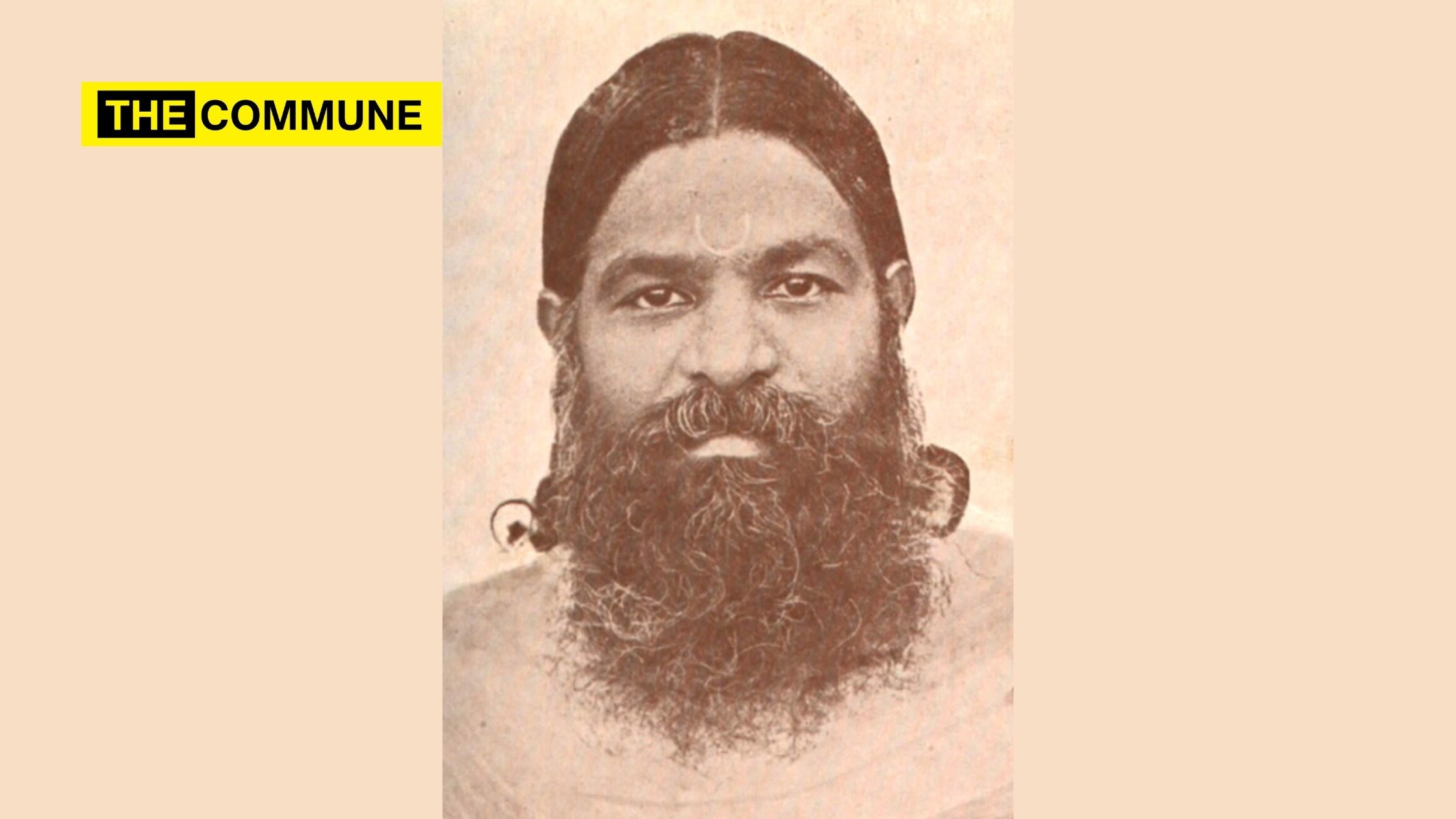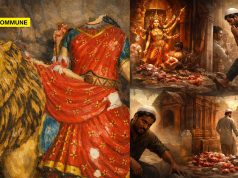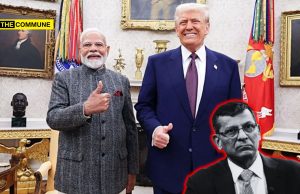
While the history of our nation’s freedom struggle is a concocted version glorifying only two names and blacking out the real heroes who have sacrificed their entire lives for their motherland, the corresponding narration in Tamilnadu has also meticulously eschewed with congenital animosity, a particular section of the society, viz., brahmins who have contributed a lot not only for the freedom fight, but in other fields as well. They were either completely erased and when it was not possible, their contributions trivialised. Just a few names for instance: VVS Aiyar, Neelakhanta Brahmachari, Bhashyam alias Arya, Vanchinathan, S Satyamurthi, A Vaidyanatha Iyer, Bharatiyar, CV Raman, Ramanujam, Viswanathan Anand, Sundar Pichai.
Let us look at one of them now. The man who infused the revolutionary spirit in the Tamil land.
Varahaneri Venkatesa Subramania Aiyar.
Early Life
VVS Aiyar was born on April 2, 1881, in a middle class brahmin family in Varahaneri village in Tiruchi. He completed his graduation with B.A in History, Politics and Latin from St. Joseph’s College. He studied Law and passed the Pleader examination from the University of Madras in the year 1902. Later he practised as a Junior Lawyer or Pleader in the District courts of Tiruchi. In 1906, he went to Rangoon, and practised as a junior in the Chambers of an English Barrister. From Rangoon, he left for London in 1907, enrolled in Lincoln’s Inn with a view to becoming a Barrister at Law.
During his academic span he has mastered many languages like Tamil, Sanskrit, English, French and Latin. He was also a good wrestler, sharp shooter, proficient in all branches of athletics including swimming.
At London, his wanted to study English music and learn English dance also. Till then he was an intelligent, light hearted, fashionable youth. But, all of a sudden, as it happens in film stories, destiny played its part at that juncture. He met Vinayak Damodar Savarkar.
VVS Aiyar And Savarkar
At the end of the conversation with Savarkar, there was a metamorphosis in his life. He became an activist in the Indian freedom struggle. He became the right hand of Savarkar in organizing the Indian Home Rule League and giving training for a violent uprising for India’s liberation.
VVS was the man who stood by Savarkar in all his endeavours. He was inspired by Savarkar and in turn inspired Savarkar. Savarkar, VVS Aiyar and TSS Rajan (who later joined the Congress and also served as Minister in Madras Presidency) were the trio who made India House a hub of revolutionary activities.
One of the seminal works of Savarkar, ‘The Indian War of Independence’, was translated from Marathi to English under the supervision of VVS Aiyar. When the British Government arrested Savarkar for sedition, it was Aiyar who with the help of Irish revolutionaries attempted to recue him from prison in London.
Aiyar together with Shyamji Krishnavarma and Madam Bikaji Cama also made plans to free Savarkar at Marseilles when he was being ferried in SS Morea from London to India.
Aiyar’s Activities In India
In 1910, Aiyar resigned his membership of Lincoln’s Inn. A warrant was issued by the British for his arrest and Aiyar escaped to Paris. But he had no wish to remain in Paris as a political exile. From there, Aiyar sailed to Pondicherry. En route, from Rome, he sent a copy of Dante’s Divine Comedy by post to Mandayam Srinivasachari in Pondicherry. On arrival, Aiyar, disguised as a bearded Muslim, landed up in Srinivasachari’s house and asked if he had received a copy of the Divine Comedy. The name of the book was the password for identity! Thus, he managed to return to India, albeit to French Pondicherry, and there he met Subramaniya Bharathi and Aurobindo. He remained in Pondicherry for ten years till the end of the First World War
In Pondicherry, Aiyar was involved in the plot to assassinate Ashe, the Collector of Tirunelveli. Vanchinathan who assassinated General Ashe was his disciple and it was Aiyar who trained him in the use of pistol.
After the end of World War I, VVS Aiyar returned to Chennai and functioned as the Editor of the journal Desabhaktan. In September 1921 he was arrested for sedition and sentenced to 9 months imprisonment.
Aiyar’s Contribution To Tamil Literature
Now, by the way, if a question is asked, ‘Who is the father of modern Tamil short stories?’, most of us will invariably come out names like Kalki or Pudumaippithan, depending on the taste of the individual. While both of them deserve a distinctive place in the annals of literary history of modern Tamil, the correct answer surprisingly is VVS Aiyar!
It is said that a busy man finds time for everything. His love of literature being so intense, in the midst of freedom struggle and with the Damocles sword of arrest threatening him every moment during his exile in Pondicherry, he translated Tirukkural into English. Apart from that, he wrote hundreds of short stories. He has also translated one of the short stories composed by Rabindranath Tagore in Bengali into Tamil, titled Kapulivala.
And it was in prison that VVS Aiyar wrote his magnum opus – a study of Kamban’s Ramayana. He wanted, as was his personal trait, to infuse a sense of courage and heroism in people and towards this end he wrote a number of biographies of freedom fighters and warriors. A biography of Garibaldi, the Italian patriot, was written by him as a serial in ‘India’. He did a biography of Guru Govind Singh also.
Aiyar died in 1925 by drowning at the Papanasam falls, while trying to save his daughter Subhadra who was struggling in the water. However, many people believed that his death was mysterious and not natural! May be it will never come to light!
On his death, Vinayak Damodar Sarvakar, Aiyar’s comrade in arms, paid a moving tribute in the journal, Mahratta:
“Heavy griefs have often embittered our life; but none heavier than what thy sudden death caused, oh friend, ever taxed our capacity to endure. Memories of those momentous years and trying days rise in a flood and, struggling to find a vent, keep knocking at the gates of our heart. How we wish we could have spoken of them all and recited our reminiscences. But our lips must remain sealed. How we long to write of the goodness and gentleness of disposition – how when betrayed thou stood unshaken, how thou served them who owned thee not and how thou suffered when unbeknown and modest, and made not the slightest mention of it when thou got known – how we long to write of it all. But our pen is a broken reed. The noble story of thy life must for the time being, nay, perhaps for all time to come, remain untold. For while those who can recite it are living, the time to tell it may not come, and when the time comes, when all that is worth telling will no longer remain suppressed and will eagerly be listened to, the generation that could have recounted it might have passed away. Thy greatness, therefore, must stand undimmed but unwitnessed by man like the lofty Himalayan peaks. Thy services and sacrifices must lie buried in oblivion as do the mighty foundations of a mighty castle.
Parasuram Sharma is a retired bank officer and an octogenarian whose interests include Sanathana Dharmam, Samskritam, history and politics.
Click here to subscribe to The Commune on Telegram and get the best stories of the day delivered to you personally.




